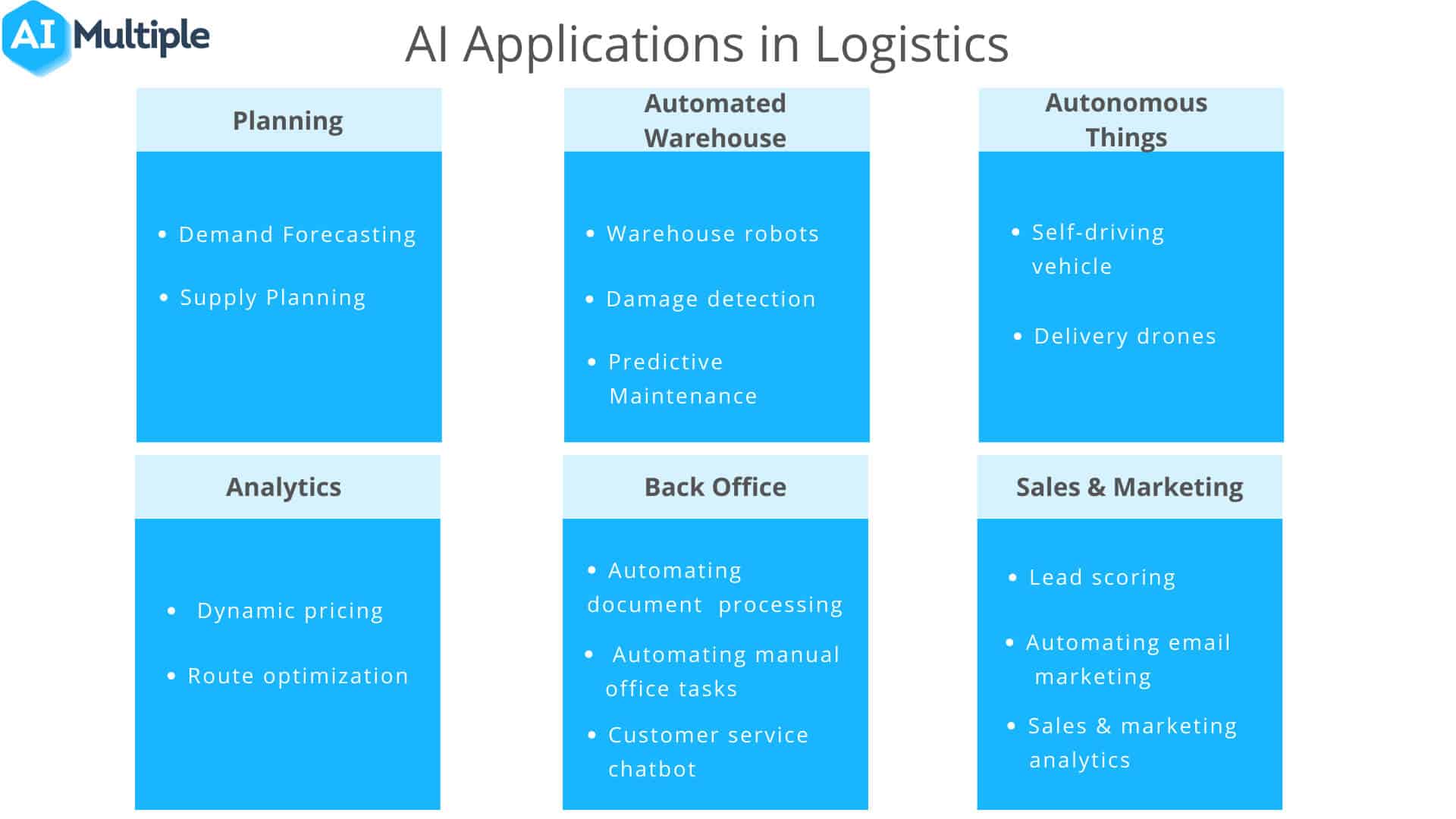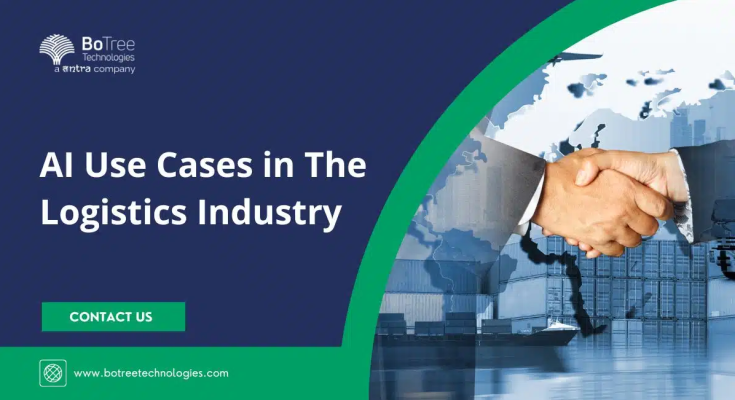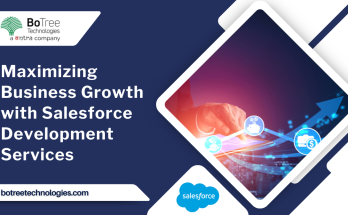The transportation and logistics industry has undergone a massive change with the introduction of artificial intelligence. After the pandemic, the adoption of automation is huge and helping with smarter digital transformations. The WTO is getting vocal about the introduction of AI technologies to help the transport and logistics industry to excel in a better way.
The use of top AI use cases in the logistics industry will help provide accurate forecasts on the movement of raw materials, predictive analysis for the movement of vehicles, and pre-information about the routes, weather, and forecast data.
Furthermore, AI can improve transport and logistics operations by enhancing the supply chain and customer experience.
5 Top AI Use Cases in the Logistics Industry
AI solutions in transport and logistics help with the targeted tasks by accomplishing the pre-planned approaches and processing accurately and faster. Also, it enhances solutions to solve the challenges occurring in logistics companies and transportation companies. Some of its use cases are as below.

- Demand Forecasting
- The global AI use in the transportation and logistics market will increase by up to $3.8 billion by 2025. The estimated CAGR increase will be 15.8% between 2020 and 2025. The AI-based solutions will help transportation and logistics industries to predict the exact demand for a certain product in the market. Demand forecasting will assist the companies in getting clear expectations on establishing adequate stock levels and correctly forecasting the price of the product.
- AI and automation technologies help organizations to make forecasts for the demand of the products in the market by using real-time data. It reduces human errors and wastage of products, optimizes the number of dispatched vehicles for delivery, reduces operational costs and holding costs, and reduces stockouts to lower consumer burnouts. Companies will receive detailed information on sales history, real-time data processing, and customer data with AI applications.
- Predictive Maintenance
- AI and machine learning algorithms support predicting machine failures in logistics operations by analyzing real-time data. The IoT sensors in the machines help identify the patterns collected from the sensor data to enhance the predictive analysis. It helps technicians take the necessary action before the failure occurs.
- Predictive maintenance also assists with planning and scheduling for the delivery of the products. Moreover, AI services help improve the decision-making process in the logistics industry. Apart from this, predictive maintenance using AI will support making recommendations and predictions about increasing the fleet’s lifespan, maintenance of vehicles, and reducing downtime. Companies use vehicle logs to predict mechanical failure in planes, trucks, or railcars.
- Dynamic Pricing
- AI-based analytics supports real-time pricing prediction. The price of the products changes because of umpteen factors like demand, competition, supply, and subsidiary product prices in the market. The pricing mechanism uses machine learning in logistics to analyze the customers’ historical data in real-time.
- Your company can adjust dynamic pricing using AI and cater to demand fluctuations. Moreover, businesses can easily predict the cost of shipped products to survive the market competition. It will help the companies to keep their product’s pricing fair. You can use AI programs to provide a better shopping experience to consumers and provide predictions on the future cost to suppliers.
- Route Optimization
- The applications of AI in the logistics and transport industry help the VRP or Vehicle Routing Problem by applying the AI/ML-powered route optimization feature. It will create the optimal route for the transportation of the products from the warehouse to the retail depots. The logistics service providers can minimize the road costs and the number of vehicles to be pressed in the fleet.
- Moreover, it encourages cost-effective and fast delivery to cut out unnecessary expenses. Companies can find the best possible route for the fast delivery of goods in real-time, considering traffic congestion, weather conditions, and vehicle speed limit. Even AI solutions can depend on historical data to predict the best day and time of the week to acknowledge when the driver should go out on the road.
- Warehouse Automation
- The AI implementation helps warehouse automation and management fulfill market needs in real-time. Artificial intelligence will help curb repetitive tasks and reduce human error related to warehouse management.
- The logistics app development company BoTree Technologies uses AI solutions to prevent fraudulent practices and gear the company toward building fraud prevention methods.
- The idea is to reduce the boring process of moving the cart, placing the things on the shelves, and marking the location of the products in the system.
Benefits of AI in Transportation and Logistics
Many established organizations are leveraging the power of AI and improving their logistics operations. Here are a few benefits of AI in transportation and logistics.
- By leveraging AI for your business, you can improve your delivery time and get the products to the customer’s doorstep in real time.
- Theft detection can be done with the help of machine learning systems that will ensure running the operations smoothly. AI will inform the logistics about the safer routes to take their fleet to avoid theft risks.
- With the help of AI, customer service will improve. Also, businesses can maintain the quality of the products and fulfill the order quickly.
- AI innovation will help accurate inventory management by ensuring products enter and exit the warehouse properly. The inventory-related processing, picking, and packaging can become time-consuming and full of errors. Inventory management will help avoid overstocking, stockouts, and fulfilling insufficient stocks.
Leverage the Power of AI to Streamline the Logistics and Transport Industry!
Artificial Intelligence is already deep-seated into logistics operations, clear from the above-provided top AI use cases in the logistics industry. It is helping in simplifying and accelerating critical logistics and transport operations. The efficiency of the operations improves, and businesses can predict the demands without any wastage and unnecessary expenses.
BoTree Technologies helps optimize the workflows and conversion of data into valuable insights. Our logistics solutions help businesses ensure real-time tracking of inventory and shipments.
Contact BoTree Technologies today for effective Logistics solutions!!



